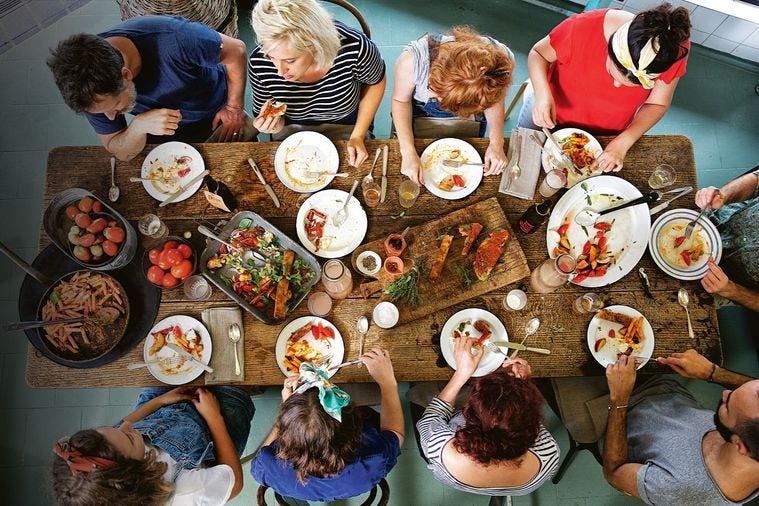SFH #13: Hara Hachi Bu
Stop eating when you are 80% full ✋🏽
My personal struggle in food-related health has always been overeating. I mentioned recently my propensity to down a bag of salt and vinegar chips. Overeating is a massive struggle in our modern culture with palate manipulating foods, extreme portions, and crafty marketing. Fortunately, there are ways to combat our 'feast or famine' gene known as the - 'thrifty gene hypothesis.' 🧬
Hara Hachi Bu! is my favorite method to avoid and combat my tendency to overstuff. The saying and practice came from Okinawa, Japan, and simply translates to stop eating when eight parts full (80% Full)
Eating 'by the numbers' from a caloric or macronutrient perspective often means we are not listening to our body's instinctual hunger cues. Eating this way can create problems when trying to lose weight; every meal usually leaves you hungry for more because we are using false math rather than evolutionary science. When we begin to listen to our natural hunger cues; instead, we let our body's beautiful system of regulation do its job. When we tap into this, we can feel how full we are getting - especially if we can 'eat real food slowly'! 😋
Our body has a delayed satiety response, so when we 'feel' as though we're 80% satisfied, we're usually less than full, which is what we want if we want to lose weight. Don't worry, your body's satiety response will eventually catch up, and you won't be walking around feeling hungry all the time. If that does happen, you can easily add in more vegetables to 'fill' you up (especially cruciferous)! The real key to stay on track with this tactic is to eat slowly and without distraction. 🧘🏽♀️
When we are distracted by our phone, tv, or eating on the move, we engage in mindless eating habits. 📺 We eat faster, and we eat more. It's as if the flashy commercial or the colorful app experience were designed to complement the dopamine response we get when sweetness hits our palate. We keep seeking the hormonal response of the 'high' and comfort rather than tap into our natural listening to particular cravings and satiety.
How can you implement Hara Hachi Bu?
Go slow by counting chews or the amount of time chewing. Aim for 10 seconds per bite or ten chews of a taste. ⏲
Use smaller plates, bowls, and receptacles. Plate size has gone from 7" to 11" standard in the last 50 years. Is it because we have bigger appetites and energy needs? No. It's because the more we eat, the more economic benefit to food, pharma, and retail. 🍽
Commune. Eating with others is one of the best things we can do to foster connection and a healthy relationship with food habits. There are exceptions, of course, when our partners and friends are enabling our bad habits, though the combination of mindful choices and connection makes for a powerful impact on our health. 🤝


